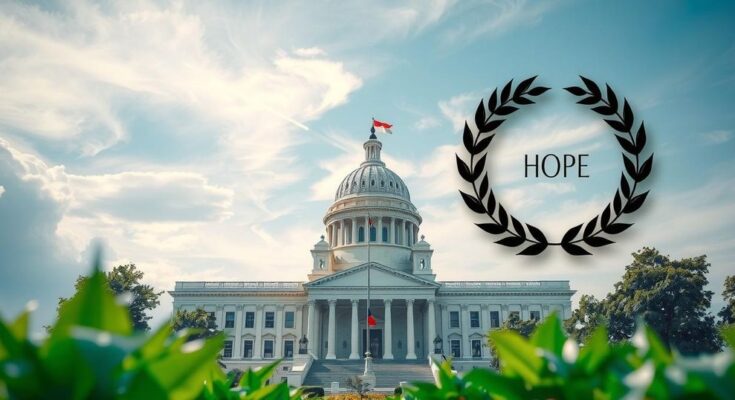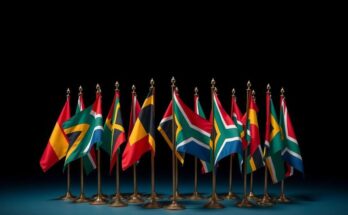Daniel Chapo was inaugurated as Mozambique’s president amid fierce protests from the opposition, which argues that the election results were fraudulent. Opposition leader Venancio Mondlane vowed to continue protests for Chapo’s entire term, citing severe unrest following the recent polls. International observers have reported significant electoral irregularities, raising concerns about the legitimacy of Chapo’s presidency.
On January 15, 2025, Daniel Chapo was inaugurated as the new president of Mozambique, despite ongoing protests and claims of a disputed election. The ceremony unfolded with significant opposition from the leading party, which urged demonstrations against the election results. Venancio Mondlane, the opposition leader, returned from exile just days before the inauguration, vowing to mobilize protests throughout Chapo’s term to disrupt governance.
In a vehement address, Mondlane claimed, “This regime does not want peace,” highlighting recent violence faced by his team. He insisted, “We will protest every single day. If it means paralyzing the country for the entire term, we will paralyze it for the entire term.” Reports indicate that over 300 fatalities occurred amidst unrest subsequent to the October elections, with international observers citing significant irregularities and questionable alterations in vote counts.
Chapo’s inauguration saw local and regional leaders in attendance, including South African President Cyril Ramaphosa and Guinea-Bissau President Umaro Sissoco Embalo. While some civil organizations are calling for the African Union to reject Chapo’s presidency, the South African Presidency highlighted the event as a chance for national unity and collaboration towards development.
Following the October 2024 elections in Mozambique, significant turmoil has ensued, with allegations of electoral dishonesty leading to widespread violence. Daniel Chapo’s rise to presidency has been marred by protests organized by the main opposition party, which seeks to challenge the legitimacy of the electoral process. The situation reflects broader issues of governance, civic unrest, and political dissent within the country.
In summary, Daniel Chapo’s recent inauguration as Mozambique’s president is overshadowed by severe opposition protests and accusations surrounding the election’s legitimacy. Despite calls for unrest from the opposition and documented violence, regional leaders have chosen to support Chapo’s administration. The ongoing situation serves as a crucial indication of Mozambique’s political landscape and the challenges that lie ahead for its governance.
Original Source: www.dw.com




